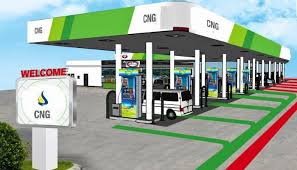In recent years, Nigeria has taken significant strides towards enhancing its energy landscape through innovative renewable energy initiatives and the growing adoption of Compressed Natural Gas (CNG). As the country grapples with energy shortages, these initiatives have emerged as vital solutions, promising not only to improve electricity access but also to reduce environmental impact and foster economic growth.
One of the flagship programs is the Solar Power Naija initiative, launched by the Nigerian government in partnership with the World Bank. This ambitious project aims to provide off-grid solar power solutions to millions of households across rural Nigeria. By mid-2023, Solar Power Naija had successfully installed solar home systems in over 500,000 households, directly benefiting approximately 2.5 million people. These installations have not only illuminated homes but also powered businesses, enhancing economic activity in previously underserved communities.
In addition to solar initiatives, Nigeria is making headway in the CNG sector. The government has recognized CNG as a cleaner alternative to traditional fossil fuels and has initiated several projects aimed at promoting its use. The Nigerian National Petroleum Corporation (NNPC) has been instrumental in developing CNG infrastructure, including refueling stations across key cities. As of late 2023, NNPC reported that it had established over 30 CNG refueling stations, facilitating the transition for transport operators and private vehicle owners. This shift is particularly beneficial in urban areas, where air pollution from conventional fuels has reached alarming levels.
The benefits of these renewable energy projects extend beyond immediate energy access. The Solar Power Naija initiative has stimulated job creation in the solar installation sector, with thousands of local technicians trained to install and maintain systems. These efforts align with Nigeria’s broader goals to reduce unemployment and empower local communities. Similarly, the rise of CNG has led to the emergence of new business opportunities in the transportation sector, with companies investing in CNG-powered vehicles that offer lower operational costs and reduced emissions.
Key stakeholders in these initiatives include state governments, non-governmental organizations, and private sector partners. The Lagos State Government, for example, has been proactive in promoting renewable energy, recently launching a partnership with private firms to install solar panels in public schools, thereby ensuring that education facilities have reliable electricity. This collaboration is expected to benefit over 100 schools by the end of 2024, enhancing the learning environment for thousands of students.
Moreover, the Nigerian Electricity Regulatory Commission (NERC) has introduced policies to incentivize private investments in renewable energy, ensuring that regulatory frameworks support the growth of this vital sector. In 2023, NERC approved licenses for 15 independent power producers focused on renewable energy, reflecting a growing confidence in Nigeria’s potential as a renewable energy hub in Africa.
While significant progress has been made, challenges remain. Infrastructure deficits and financing hurdles continue to impede broader adoption of renewable technologies. However, the government’s commitment, coupled with international support, is paving the way for a more sustainable energy future.
As Nigeria embraces these renewable energy initiatives and expands its CNG infrastructure, the country stands at the forefront of an energy transformation. With continued investment and collaboration, the potential for a sustainable and economically viable energy future is within reach, offering hope for millions of Nigerians still facing the challenges of energy poverty.




